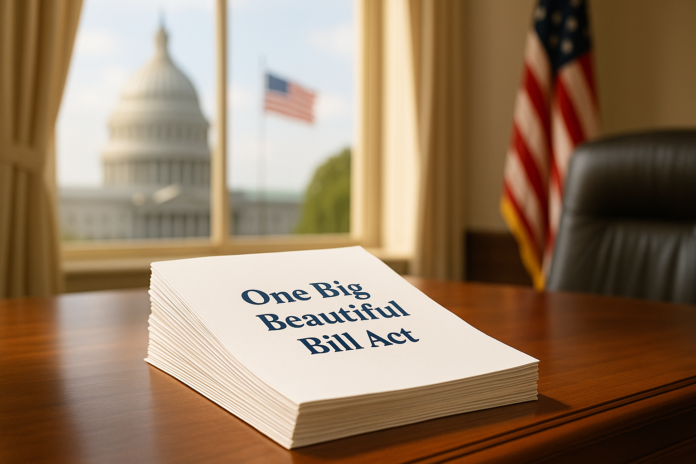Vidya Sethuraman
India Post News Service
On July 4, Independence Day, President Donald Trump signed into law a sweeping bill that affirms much of his agenda: keeping in place tax cuts imposed during his first term, giving the fossil fuel industries and border security a big budget boost, and sharply narrowing the scope of health and food safety nets, including Medicaid and the Supplemental Nutrition Assistance Program SNAP. Speakers at the ACOM Briefing discussed some of the impacts of the new budget and spending bill, including long-term effects on American health, the environment, and the national deficit, which is expected to rise by $3 trillion over the next decade.
Larry Levitt, Executive Vice President for Health Policy at KFF pointed out that although the bill is nominally a tax reform, it brings the most significant change to the U.S. healthcare system since the passage of the Affordable Care Act (ACA), which is equivalent to partially repealing the ACA and erasing the achievements of expanding health care coverage over the years. According to the Congressional Budget Office, the bill will cut more than $1 trillion in federal health care spending over the next decade, and about 11.8 million people will lose their insurance. Levitt emphasized that many low-income immigrants with legal status, such as refugees, asylums and temporary protected status, will be excluded from ACA premium subsidies, Medicaid and Medicare. In addition, the enhanced ACA premium tax credit measures implemented by the Biden administration in 2021 will expire in 2026 if not renewed by the end of the year, resulting in an average 75% increase in premiums for more than 20 million ACA policyholders, and millions of people will lose their insurance.
Natasha Sarin, a professor of law and management at Yale University, said that this bill would not only fail to reduce the deficit, but would push the US debt-to-GDP ratio to 135%, higher than the current level of about 100%. This $3 to $4 trillion expenditure did not go to those in need, but instead reduced the after-tax income of the bottom 40% of households, while the richest 1% of the population received an average tax cut of $30,000 per year.
Bill McKibben, an environmental writer and founder of the climate action group Third Act, said the bill was a huge setback to climate policy. “It almost completely repeals climate subsidies passed during Biden’s term, such as tax breaks for solar, electric vehicles, and energy storage equipment.
Also Read: Trump pushes for ‘one big beautiful bill’ – USA will soar like never before







